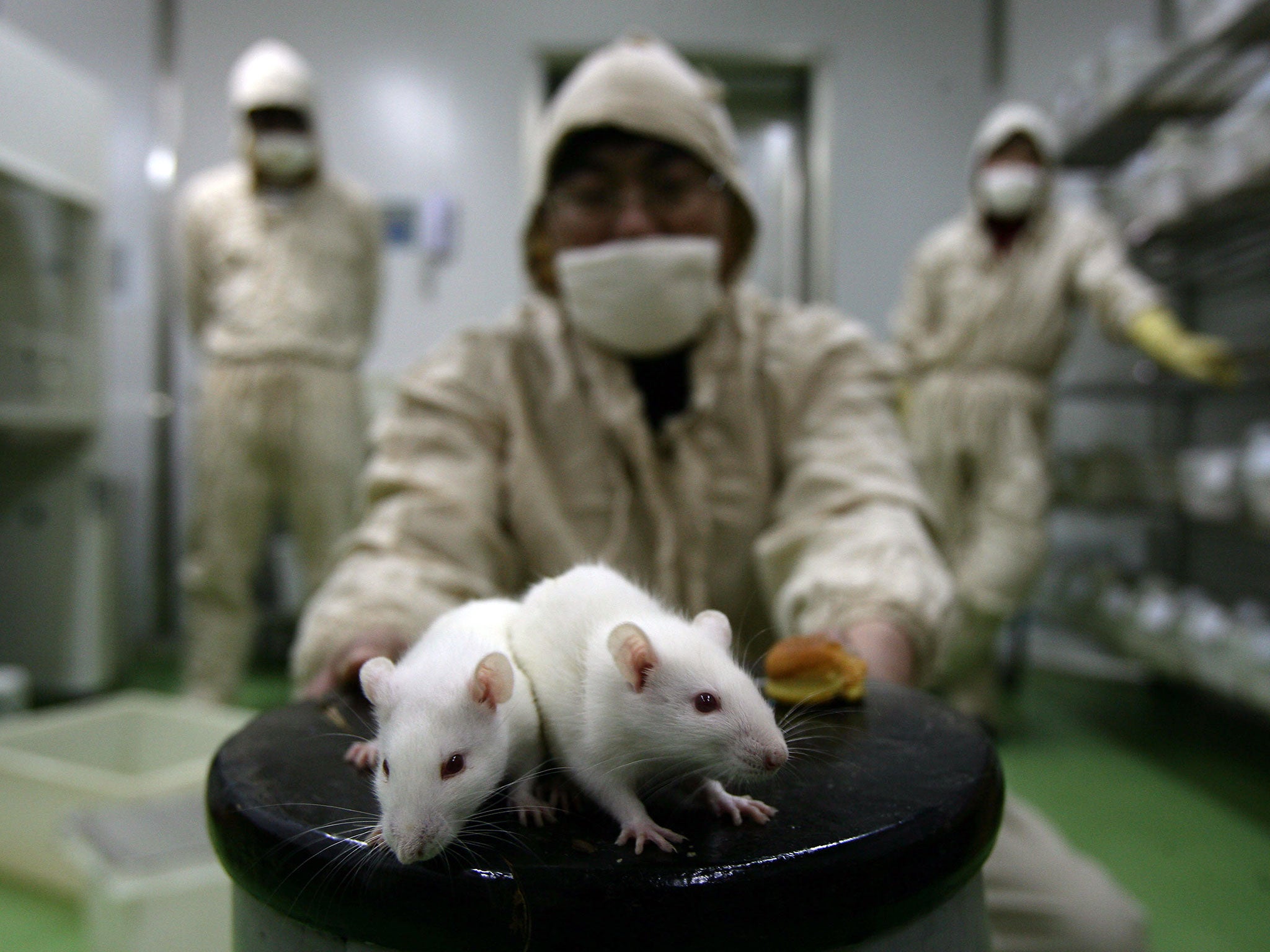The EU fought cosmetic tests on animals, battery hens and elephant poaching gangs. Brexit could end that
Last year the EU's crime-fighting body Europol supported the world's largest ever international operation against wildlife crime. All of this could be reversed if we leave

Your support helps us to tell the story
From reproductive rights to climate change to Big Tech, The Independent is on the ground when the story is developing. Whether it's investigating the financials of Elon Musk's pro-Trump PAC or producing our latest documentary, 'The A Word', which shines a light on the American women fighting for reproductive rights, we know how important it is to parse out the facts from the messaging.
At such a critical moment in US history, we need reporters on the ground. Your donation allows us to keep sending journalists to speak to both sides of the story.
The Independent is trusted by Americans across the entire political spectrum. And unlike many other quality news outlets, we choose not to lock Americans out of our reporting and analysis with paywalls. We believe quality journalism should be available to everyone, paid for by those who can afford it.
Your support makes all the difference.As the EU referendum debate rages on, with conflicting facts and assertions flung both ways, it's worth taking a step back and thinking of the positive things we have achieved together in Europe. So often, they remain unseen and unacknowledged.
Take the protection of animals. The EU now has some of the highest animal welfare standards in the world. In 2012 it banned battery caged hens and sow stalls that cruelly restricted movement, giving the millions of these animals farmed in Europe a far higher quality of life.
Strict rules are in place to ensure animals are given regular rest, food and drink when being transported, and since an EU court judgement last year these rules now apply to journeys that continue outside the EU.
European laws have also ended the use of great apes in animal testing and banned the sale of any cosmetic products that have been tested on animals. This is an area where UK leadership in Europe has helped to drive up standards across the board, and that is something we should be proud of.
The European Union has already been at the forefront of global efforts to tackle wildlife crime. It has contributed millions of pounds to schemes that prevent the illegal killing of elephants by training up law enforcement and setting up anti-poaching patrols.
Last year the EU's crime-fighting body Europol supported the world's largest ever international operation against wildlife crime. Over 200 arrests were made and 12 tonnes of elephant ivory and 119 rhino horns seized. In the UK seizures included 400 live tortoises, 11 black bear claws and 66 turquoise blue geckos. Leaving the EU would rob our police of the tools they need to stay one step ahead of wildlife-trafficking gangs.
The trafficking of poached ivory, rhino horn and other animal parts is now worth an estimated £14 billion a year, making it the fourth largest illegal trade in the world. This despicable trade is lining the pockets of criminal gangs and terrorists, fuelling insecurity and driving some of our best-loved animals to the brink of extinction.
The stark truth is that if current rates of poaching continue, a child born today could see tigers, elephants and rhinos wiped out in the wild before their 25th birthday.
The only way we can only defeat those profiting from this despicable trade is by working together internationally at the heart of the EU.
The ruthless criminal networks who make billions each year smuggling ivory through Europe are able to operate seamlessly across borders, so our efforts to tackle them must do the same.
Last year, I set up the cross-party MEPs for Wildlife Group to campaign for even closer EU cooperation in the fight against wildlife crime. Last week, our demands were met as a comprehensive EU action plan was launched setting out 32 specific measures to crack down on wildlife trafficking.
Currently traffickers caught in many European countries get away with little more than a small fine and a slap on the wrist. Only eleven EU nations, including the UK, punished wildlife criminals with prison sentences in 2014. So a crucial part of the plan is to require all EU countries to introduce prison sentences of four years for serious wildlife trafficking offences. This will bring other countries into line with the UK and ensure the criminal gangs involved in this vile trade get the punishment they deserve.
The plan will also see more EU aid funding focused on efforts to take on poachers in developing countries. This will include projects to promote alternative livelihoods such as wildlife tourism, so local communities see wild animals as an economic asset to be protected and not slaughtered for short-term gain.
There will also be increased support for international police operations against wildlife trafficking, restrictions to ensure that only antique ivory items from long-dead elephants can be traded in Europe, and awareness programmes to reduce demand in East Asia (one poll found a shocking 70 per cent of Chinese people did not even realise ivory came from dead elephants).
The illegal wildlife trade is just one of the many global problems where we are stronger acting with the weight of the EU, the world's largest economy, behind us. The UK has already led the way in the protecting animals and fighting wildlife crime, now we are taking the rest of the EU with us. The stark truth is that Brexit would mean throwing all this progress away and weakening our ability to change the world for the better.
Catherine Bearder MEP is chair of the Liberal Democrat EU Referendum Campaign
Join our commenting forum
Join thought-provoking conversations, follow other Independent readers and see their replies
Comments